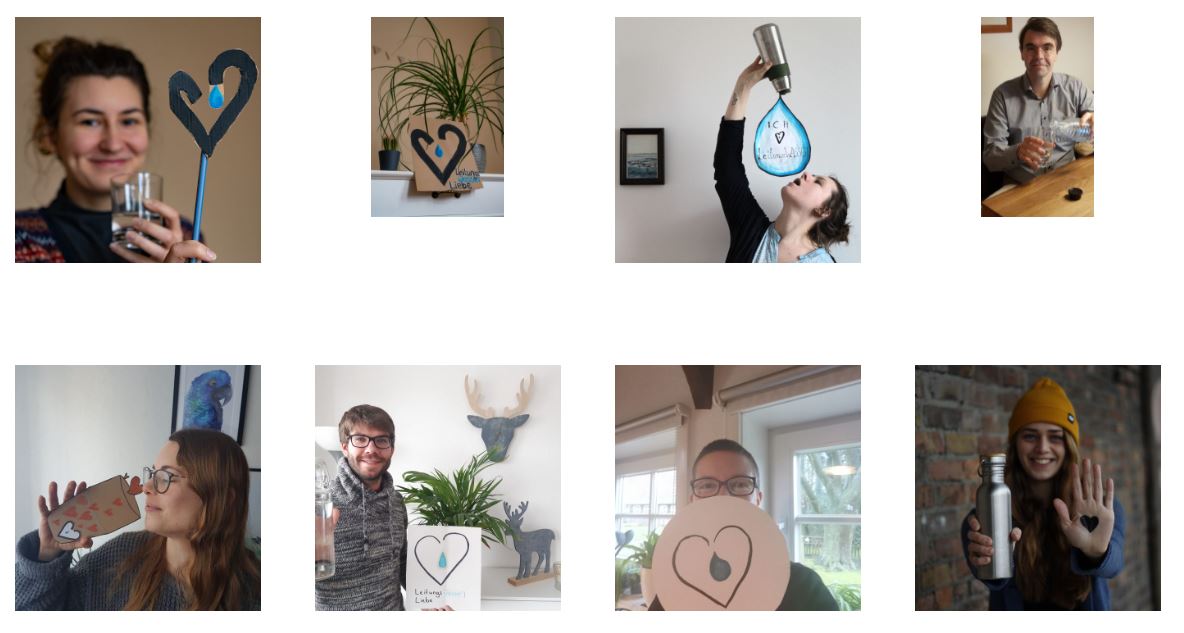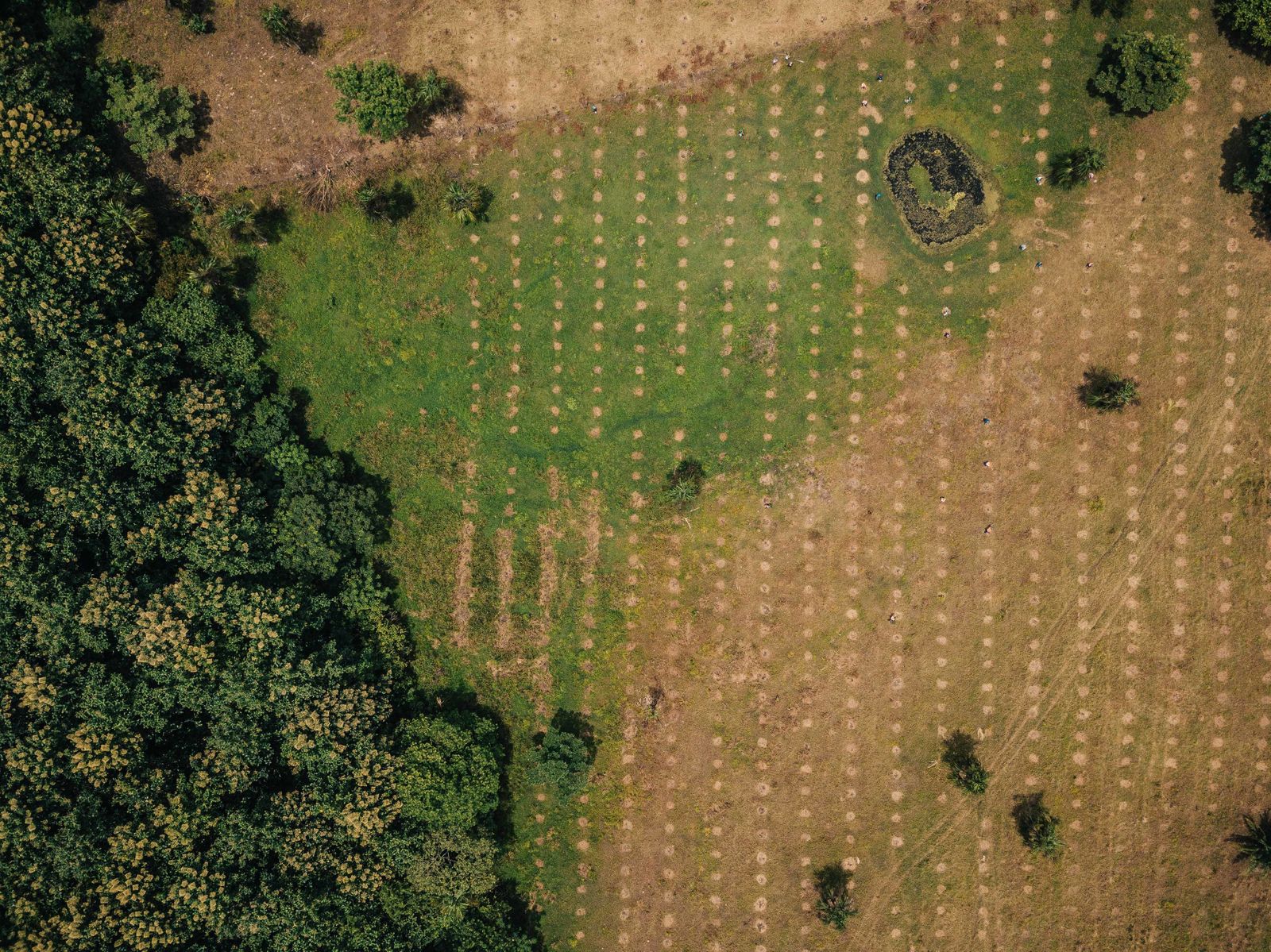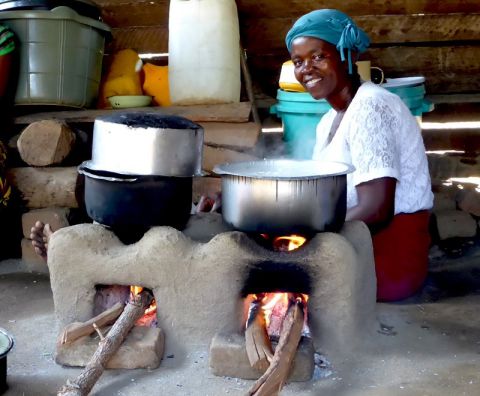Interview with Pam Haigh, UK General Manager of Ripple Africa
For seven years Pam Haigh has worked for Ripple Africa as one of five members of the small team based in the UK – three paid employees and the two founders. The rest of the “family”, as Pam calls them, is the 142-member operating team in Malawi. The story of Ripple Africa goes back almost 20 years to when the founders, Geoff and Liz Furber, were travelling around Africa and a wrong turn led to its creation:
The record of the interview was actually not meant to be published. But it’s so much nicer to hear Pam tell the stories than only to read the shortened version, so I highly recommend you to listen to the audio on our project page (if you can stand my uhms).
Panterito (Kristina Huch): What was the motivation of Ripple Africa when it started and so what is the aim of the organization?
Pam Haigh: It’s really interesting actually, because Geoff is a businessman. He has never been involved with charities until he founded Ripple Africa. He and his wife were travelling around Africa, and were in Malawi trying to find their way for a lodge to stay for the night – and they got lost. Somebody said, `it’s getting dark, there is something down the road, why don’t you go down there´. They arrived in the dark, it was literally on the shores of Lake Malawi and when they woke up the following morning, and saw the beauty of where they were, they were completely bowled away. And they discovered that this lodge was actually for sale. So, on a whim almost, they decided to buy it. But the owner had an existing arrangement with local schools for teachers to come and volunteer. And they said, `we’d like to honour that and therefore we better set up a charity so that we could do it properly´.
So, when we started up, we were really only supporting a few local primary schools. And then – as happens with most of the projects we do – you start talking to the local people, and you discover that actually there’s no secondary school within easy walking distance. And so therefore we built a secondary school, which we handed over to the government. And we then thought, there are no government preschools. So we now run eight preschools.
We then supported some of the health clinics. From there we started talking to some of the people and discovered that a lot of the issues they have are environmental issues. And so over the years we’ve become much more an environmental charity, and we mainly do that on a very large scale. But we’re still supporting the local community near our base in Nkhata Bay District. So it’s very much a mixture of different types of projects. But that makes the job so much more interesting and so much more fun.
So, it’s a very big focus on community work, and you already mentioned some advantages, being able of having so many facets of projects. What are other advantages of this approach, and perhaps what are problems?
Every time we go over there we are usually approached by people who say `we need help with this, we need help with that´ and it’s very easy to get sucked into too many different areas and we have to be very focused, because that would take our focus to far away from the main things that we’re doing.
But because of the way we’ve grown we have got to know all levels of the community very well, so we work with everybody from the district governance people right the way down to individual villagers. And by involving all of them in everything we do, you get the buy-in of the people that really are able to help you make your projects work. And that I think strengthens what we do because we’re able then to really identify what are the real problems that are affecting people.
And our strength I think is that we come up with cost-effective and simple solutions based on what people can actually do themselves. For example our cook stoves project: we know an awful lot of organizations in Malawi who give a metal cook stove to a household and say, `there’s your cook stove and that’s gonna save you wood´. And they then walk away because most funding from organizations is only for one or two years. And often the cook stove will break or the householder will forget how to use it, and so they’ll put it to one side and go back to their traditional way of cooking on a big three stone fire, which uses huge pieces of wood.
Whereas the way we work is we sit down, and we say, `okay, what are you going to cook and how are you going to cook it and what’s important to you and let’s design something together and let’s design it out of local materials. Let’s help you to build it rather than us give you something. This is going to be yours, and you’re going to have ownership of it.
Is this what you call a charity run like a business?
Yeah, very much so. I think a lot of charities start with the very best of intentions but don’t operate in a business-like way. So a lot of aid-funding I think is wasted. If you have a product, and you are selling a product to a customer, you have to deliver that product and the customer has to be happy with it. Then everybody is fine. But a lot of aid organizations don’t involve people in the decision-making, so it isn’t a product that they want or understand. And I think that’s the difference with us than a lot of organizations. And it means that we can do a huge amount for quite a small amount of money really.
Don’t you get problems because the effort of supporting the communities for such a long time means ongoing cost for staff?
Yeah, absolutely. And that is a problem with our funding. Because as I said before a lot of aid funding is only for one or two years. You know, we had some fantastic support from some very big trusts and foundations, but they sort of expect that after a year the problem is solved. And that patently isn’t the case.
And I think there has been a problem with a lot of organizations almost bribing people to do things. For example, we went to one particular area up in the hills around where we are with the cook stove project, and we said, `this is the cook stove, that is what we want to do´ and talked to them about it, and they said, `well, where are our free pots and pans?´ and we said, `what do you mean?´ and they said, `somebody came the other week, and they were going to give us free pots and pans with their cook stove, where are ours?´. And we said: We don’t do that. You know what you’re benefitting from is you gonna have trees on the hills around where you live rather than cut them all down for the wood. And you’ll going to save time, because you don’t have to collect all the wood. And that I think is one of the big issues really – there is an expectation that things will be given for free without them to actually invest anything themselves. And we’re trying to change that mindset really.
I have another question going in this direction. We want in our next report to include a failure report. So thinking about what did not work, identify the problems and then try to do better the next time. Could you name problems for Ripple Africa and perhaps not only for the stage you’re in now but also for earlier stages?
One of the things we are very strong about as an organization is admitting when things go wrong. One of the things that we found with the people we are working with in Malawi is they like to say yes all the time, and they like to satisfy you, and they don’t want to say anything that they think is going to upset you. So we started off by going in and saying, `how are things going?´ and they said, `oh, everything is fine´. And then we weren’t seeing that in the results that we were getting. And we’ve had to actually almost change the culture in encouraging people to admit when they’ve made a mistake and then learn from it and change what they do.
One example is when we started our Changu Changu Moto cook stove project, we wanted to have people based in local villages who are going to be coordinators who could help the householders to introduce the stoves and learn how to use them. And so we approached the local chief and said, `can you suggest a person in your village?´. And because there’s not very much employment, they were suggesting mainly young men. Now the problem with that is, a young man doesn’t do the cooking so doesn’t understand how women cook. He has just watched it from a distance and then eaten the food. So we weren’t getting that relationship building that we really needed. And we completely changed the way we did things: When we started to go into new villages we said, `can you introduce me to a woman that everybody has respect for?´. And then we went and worked with her, and she then became almost champion of the new way of cooking. But you only learn things like that by doing it wrong in the first place.
Another big problem for us all at the moment: How is Covid changing your work?
Well it’s really interesting actually, because we thought it would have a much more devastating effect than it actually has. Luckily, Malawi has had much fewer cases and I think it’s basically because first of all they have a much younger population – over 50% of the population is under the age of 18. And also they were very good at shutting down all the borders very quickly. But they are now seeing a spike in cases because of the South African variant, because a lot of Malawians travel to South Africa to earn money for their families. And they’ve come back into the country and brought the disease with them.
But Malawi doesn’t have any sort of social security system. So if people aren’t working, they starve. And so most business has carried on. And we’ve done quite a lot of work with our conservation volunteers to help spread the message about the importance of handwashing and social distancing and how to recognize the symptoms and what to do then. And mask-wearing in public is compulsory, but obviously unless you’re spotted, you get away with it. But we ask all our staff and volunteers to set a good example by wearing their masks.
But one of the interesting things is that when we started talking to the district council about Covid, one of the things we discovered – which we didn’t realize – is how many broken boreholes there are. I think just in our district alone there were about 800 broken boreholes. Which meant that the boreholes working had a lot more pressure on them. Each borehole is on average used by 150 different people. So if you think the three around you are all broken then all of those people are using one, which exacerbates the problems of infection being spread.
So we’ve actually now moved into repairing boreholes. Which is a project that we would never have been involved in before Covid. Actually all we’re doing is providing the funding for the spare parts and the transport. Because the District Council has a team of maintenance people, whose job it is to repair boreholes, but they don’t have the money to actually buy the spare parts.
And we are now discovering that none of our local hospitals have oxygen facilities. So we have now managed to raise some funds to supply our local hospital and clinics with oxygen concentration machines which hopefully will not only help them with Covid but also for years to come. So it’s been an opportunity as well as a tragedy for us.



 9.800 counted trees
9.800 counted trees 4 planting partners
4 planting partners 945 t estimated carbon sequestration
945 t estimated carbon sequestration Additional value
Additional value




















